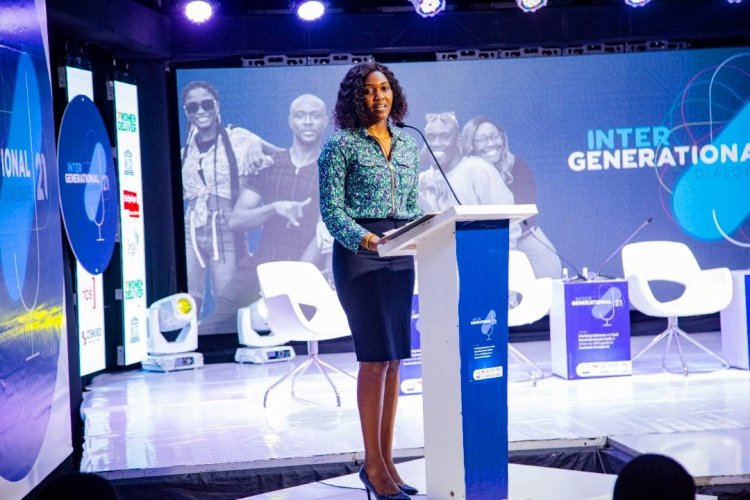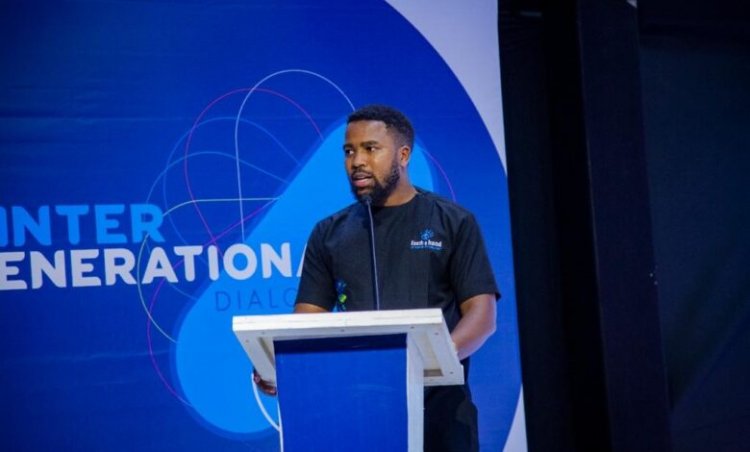IGD 2021: Reach A Hand, partners call for concerted efforts to strengthen voices for Sexual Reproductive Health for young people.
To effectively respond to issues Sexual and Reproductive Health especially in the COVID-19 era, all governments, scientists, civil society actors, and the private sector must work together because even if covid-19 is no more, its effects are going to be with us for a while

Reach A hand Uganda, in collaboration with stakeholders such as Next Media, CEHURD, UNESCO, and UN Women, among others, convened under the 2021 Inter-Generational Dialogue (IGD) to discuss issues in the field of Sexual Reproductive Health, Rights, and the challenges that young people face in accessing knowledge that is fundamental to informing the choices they make in life.
The inter-generational dialogue brings stakeholders of all ages together to discuss SRHR challenges affecting young people such as the unmet need for contraception, early marriages, teenage pregnancies and so on and how these issues can be addressed with long-term solutions
The IGD 2021, sought to collaborate with like minded individuals and organisations to facilitate partnerships, foster powerful dialogue and innovate towards gender equality and improved Sexual and Reproductive Health and Rights.
“Prioritizing Adolescent and Youth Sexual Reproductive Health to Achieve the 2030 Agenda for Sustainable Development,” was the theme of the 2021 IGD.
The 2021 Intergenerational dialogue was designed with three objectives in mind: amplifying young people’s SRHR issues in the new normal of the COVID19 pandemic, self-care, is it the future of SRHR management?, and gender equality 25 years in the future.
According to Reach a Hand Uganda, Uganda has made progress in a variety of areas since the adoption of the Sustainable Development Goals (SDGs), including maternal and sexual reproductive health and being ranked 18th out of 52 African countries by the Sustainable Development Solutions Network based on 97 indicators across all 17 goals (SDSN).
Uganda continues to struggle with various SGSs including Adolescent and youth SRH is included in SDG 3, Good Health and Well-being, which addresses all major health priorities, including reproductive, maternal, and child health, as well as SDG 5: Gender equality in all aspects of women and girls’ lives, which includes (1) ending gender disparities, (2) eliminating violence against women and girls’ lives, (3) eliminating early and forced marriage, and (4) ensuring equal participation and opportunities.
While officiating at the 2021 IGD conference, Hon. NyamutooroPhiona, the National Female Member of Parliament for Youth, told participants that the existing intergenerational conflict and misconception of who young people are, as well as the power struggle that goes with it, can only be addressed when young people are involved in decision making for their issues.
“Young people should be at the center of the young generation in order to provide alternatives and decisions that will improve their lives.” Aside from statistics, there is a need to raise awareness about sexual and reproductive health,” she stated.
She also stated that there is a large gap in misinformation that young people have access to regarding sexual and reproductive health issues, which she believes should be saturated with agents, young people, right information, and access to proper health centers.

During the IGD 2021, which was held both physically at the NBS Auditorium in Kampala and virtually on the 20th of October 2021, Humphrey Nabimanya, the Founder of Reach A Hand a Uganda, said that adolescents and youth face the unique challenge of managing their personal development and transition to adulthood in the face of greater uncertainty than usual, particularly in light of the COVID-19 pandemic.
He stated that a smooth transition from childhood to adulthood benefits society as a whole, and that evidence-based policies that assist young people during the COVID-19 pandemic, as well as ensure their meaningful participation in decision-making processes related to the pandemic’s response and recovery, are critical.
He urged all stakeholders to support young people’s efforts to rebuild better.
“Since 2014, IGD has influenced changes in policies, frameworks, and spaces that address the challenges faced by young people from all walks of life.” Despite the fact that COVID-19 has developed challenges for young people such as teenage pregnancy, domestic violence, and poverty, among other things, “we need to address young people and adolescent issues by everyone; CSO, parents, clergy,” he said.
“To effectively respond to this rapidly spreading pandemic, all governments, scientists, civil society actors, and the private sector must work together because even if covid-19 is no longer with us, its effects will be with us for a long time,” said James Tumusiime, country director of Reach A Hand Uganda. The pandemic has exacerbated existing inequalities for women and girls, as well as discrimination against other marginalized groups such as people with disabilities and those living in extreme poverty, and threatens to obstruct the realization of women’s and girls’ human rights.
“Ugandan adolescents and youth deserve a community which prioritizes their well-being.” This can be accomplished through policies, community engagement, and dialogue. The IGD is one of those platforms that brings stakeholders together to assess these three factors and forge ways forward to ensure the enjoyment of sexual and reproductive rights.” Winnie Reach A Hand Uganda’s Policy and Advocacy Manager, Brenda Watera, stated
Reach A Hand Uganda is a youth-serving organization that focuses on youth empowerment programs, with a special emphasis on Sexual Reproductive Health and Rights (SRHR), HIV/AIDS awareness and prevention. Reach A Hand Uganda’s efforts are assisting in ensuring that every young person in Uganda has access to accurate information that will assist and direct them in making important life decisions regarding their life skills and development, as well as sexual reproductive health and rights.












